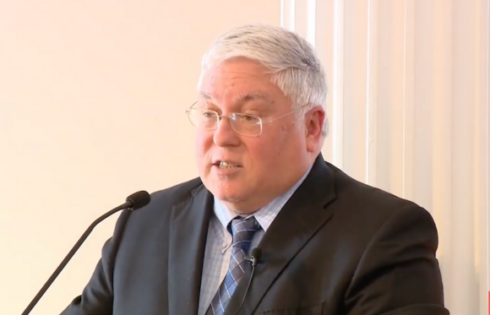
Factual questions are dangerous
“Trauma-informed” investigations into sexual assault claims are the latest fad in not only campus disciplinary proceedings, but also campus police departments.
University of Minnesota law enforcement is the latest to adopt a department-wide approach that assumes an accused student is guilty from the start of the investigation, also known as “victim-centric” (the default judgment is built into the very name).
Minnesota Daily reports:
Russell Strand held up a 100-piece puzzle box as a metaphor for a typical criminal case, each piece inside representing a specific memory a victim has of the crime that investigators try to put together.
But when victims experience trauma, he said, their puzzle requires a different approach.
“What happens in trauma is this,” he said, throwing a dozen pieces in the air. What victims don’t get, he said, is the puzzle box — with its picture of the complete puzzle.
Strand used the example to illustrate the reasoning behind his specialized method of interviewing and working with victims of trauma and sexual assault, which he taught Tuesday to about 125 Minneapolis and University of Minnesota police officers.
MORE: Avoid program that prejudges accused students, Arizona warns
It actively harms accusers to ask them basic factual questions about their accusations, according to Strand, former chief of behavioral sciences at the Army’s military police school:
The questions he teaches cops to ask are open-ended and center on the victim’s experience — their thoughts before and during a crime, tactile memories such as smells, sounds and feelings, and details of the experience that they can’t forget.
UMinn police chief Matthew Clark says it’s important for officers to “learn how to adapt to victims’ experiences” before they have any clue whether an accuser is a victim, as adjudicated by a non-police body:
“When you start talking about your experience based on your senses, you actually start telling the tale of what happened,” Clark said. “But you can’t dictate it; you’ve got to let those victims go with it the way they experienced it.”
It’s not clear whether UMinn police are going as far as University of Texas police, which started explicitly refusing to collect evidence that may exonerate an accused student a year ago.
MORE: UT hides evidence that helps students accused of rape
The Foundation for Individual Rights in Education warned that UT police were being politicized when they were told to avoid asking certain questions of accusers:
To prevent the defense from being able to [expose inconsistencies in an accuser’s original and later testimony], the report essentially suggests that investigators avoid creating any record in which parties might make contradictory statements. So, investigators should “avoid repeating a detailed report” when conducting follow-up interviews, and they should “reduce the number of reports prepared by investigators,” all to limit the defense’s ability to challenge the prosecution’s case.
An investigator who is trying to anticipate and counter defense strategies in the course of his/her investigation is not acting as a neutral fact-finder—that is, someone who is trying to find out what actually happened.
Arizona is also worried that such slanted investigations will endanger its prosecutions. It told prosecutors last fall not to follow Arizona State’s lead in partnering with the pro-accuser group Start by Believing because it could taint their investigations with “confirmation bias.”
MORE: GW forces students to take ‘trauma-informed’ rape workshop
MORE: Student admits inventing rape to draw sympathy
MORE: Campus paper explains why it calls accuser ‘victim-survivor’
Like The College Fix on Facebook / Follow us on Twitter






Please join the conversation about our stories on Facebook, Twitter, Instagram, Reddit, MeWe, Rumble, Gab, Minds and Gettr.